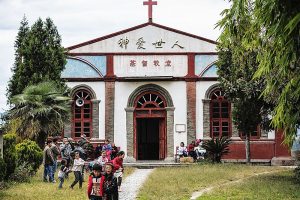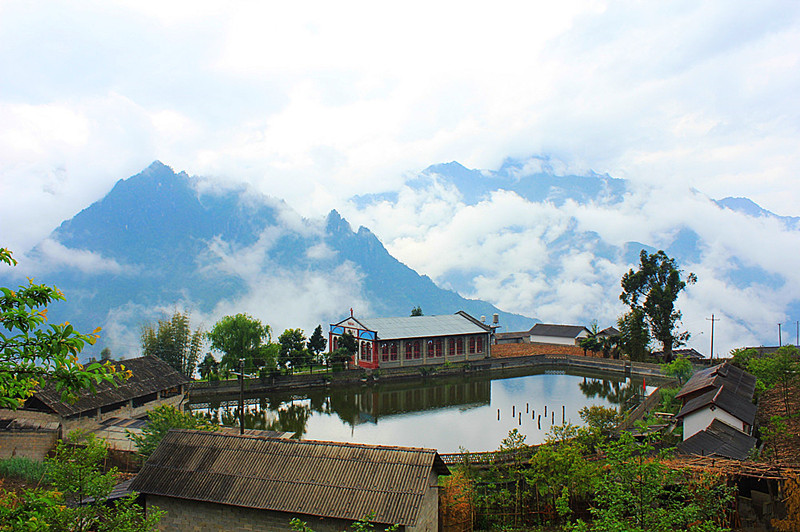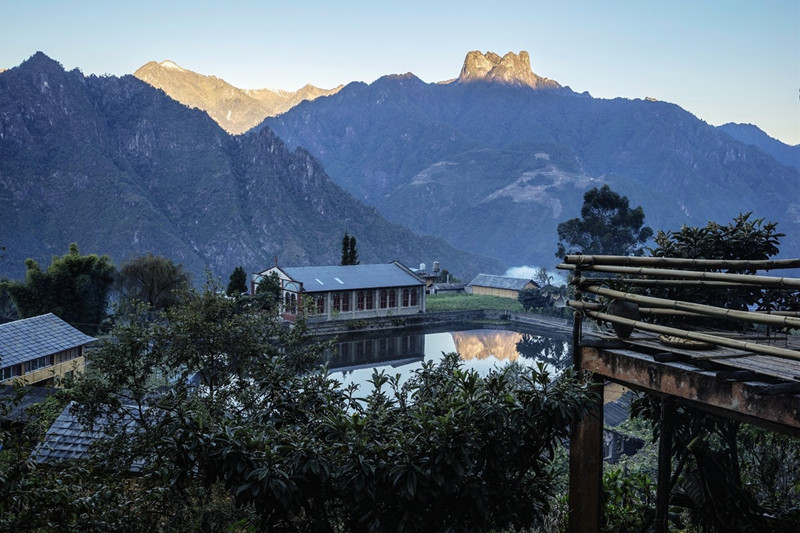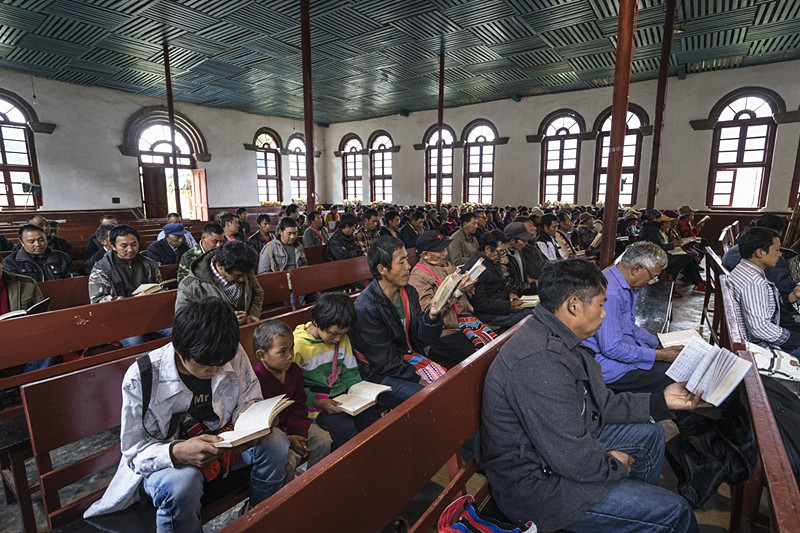Laomudeng Village in Fugong County, Nujiang

Attraction Overview
“Laomudeng” is the transliteration of the Nu language, meaning “the place that people like to come.” Due to the government’s support for the Nu Culture Village, the tourism industry has developed in recent years, and the economic conditions are quite good.
Attraction Type: Traditonal Village
Chinese Name: 老姆登村(Pinyin: Laomudengcun)
Recommended Visiting Time: 1 Day
Open Hours: All-Day-Long
Admission Fee: Free
Altitude: 1,850 meters
Location: Pihe Town, Gongshan County, Nujiang Lisu Autonomous Prefecture, northwest of Yunnan province
Plan your Yunnan Ethnic Villages Tour to Nujiang? Visit Laomudeng Village in Fugong County, Nujiang which is one of the most fascinating ethnic villages in Nujiang. Explore the local folk ethnic culture including History, Food and Dining, Clothing, Customs and Traditions, Architecture, Festivals, Crafts, Religion,Language of local ethnic people in Laomudeng Village in Fugong County, Nujiang (怒江州贡山县老姆登村).
Why is Laomudeng Village So Special?
Laomudeng boasts green mountains, clear rivers and picturesque landscapes. Against the backdrop of fast-growing modern economy and society, it still maintains Nu people’s unique architectures, featuring stilt, wooden tile, bamboo fence and wood floor. “Laomudeng” is the transliteration of the Nu language, meaning “the place that people like to come”. It was selected as the most beautiful village in China in 2014 and 2017. The environment in the village is really good. Laomudeng is the best location for photographing the sceneries of Nujiang Grand Canyon, Gaoligong mountain, Huangguan mountain and the customs of the Nu Minority.
Where is Laomudeng Village – Location
The village of Laomudeng(老姆登村) is 2,000 meters above sea level. It is a condescending place. Located on a slope belt in the eastern bank of the Nujiang River, Laomudeng stands between Biluo Snow Mountains and Gaoligong Mountains in eastwest, with the Nujiang River flowing southwards across them. It’s under jurisdiction of Pihe Nu Township of Fugong County, about 13 kilometers away from the county seat, adjacent to Lanping village in the east, Zhiziluo village in the south, Miangu in the west and Shawa village in the north.
Culture
Laomudeng village in Fugong in home to 180 families. Difference ethnic minority groups inhabiting this prefecture include the Lisu, Nu and Dulong, Tibetan , Bai peoples. Most of them believe in Christian, only a small group people kept the original belief, such as the Lisu Dongba religion and Tibetan Buddhism.
As the land is fertile and moist, with fresh air and Biluo mountain spring as water source, the tea planting don’t need any artificial fertilizer. There is no pollution within several tens of kilometers around, and the tea factory is built on the edge of the tea garden, so the green tea produced in this village is favored by tea drinkers.
Main Attractions

Laomudeng Church
Laomudeng Church in Fugong County is the biggest Christian Church in Nujiang Grand Canyon in Northwest Yunnan. It is a best Nujiang tourist site, where you can experience christian church integrated with local Nu ethnic culture. The words “God loves the world” in the Laomudeng Church are very touching. It is also the largest Christ church in the Nu River basin.
Huangguan Mountain
The most famous “landscape” of Laomudeng is the Crown Mountain(皇冠山) opposite the mountain of Gaoligongshan Mountain (高黎贡山), because it resembles the crown. Its unique shape is quite conspicuous in the continuous peaks.
Nujiang Grand Canyon
The Nujiang Grand Canyon, which is more than 800 meters above sea level, stretches for 300 miles and can’t see the end at a glance. In the morning of the Nujiang Grand Canyon, the clouds are raging, and you can imagine looking at the Laomudeng in the low places, just like sitting on the clouds. From the viewing platform, we can see the Grand Canyon of Nu River (怒江大峡谷) is sandwiched between the mountains, looks very magnificent.
Useful Travel Tips
· There are quartet chants in Laomudeng church on Wednesdays and Saturdays which you can’t miss.
· Respect the local folk customs.




 7 Days GolfingTour
7 Days GolfingTour
 8 Days Group Tour
8 Days Group Tour
 8 Days Yunnan Tour
8 Days Yunnan Tour
 7 Days Shangri La Hiking
7 Days Shangri La Hiking
 11 Days Yunnan Tour
11 Days Yunnan Tour
 6 Days Yuanyang Terraces
6 Days Yuanyang Terraces
 11 Days Yunnan Tour
11 Days Yunnan Tour
 8 Days South Yunnan
8 Days South Yunnan
 7 Days Tea Tour
7 Days Tea Tour
 8 Days Muslim Tour
8 Days Muslim Tour
 12 Days Self-Driving
12 Days Self-Driving
 4 Days Haba Climbing
4 Days Haba Climbing
 Tiger Leaping Gorge
Tiger Leaping Gorge
 Stone Forest
Stone Forest
 Yunnan-Tibet
Yunnan-Tibet
 Hani Rice Terraces
Hani Rice Terraces
 Kunming
Kunming
 Lijiang
Lijiang
 Shangri-la
Shangri-la
 Dali
Dali
 XishuangBanna
XishuangBanna
 Honghe
Honghe
 Kunming
Kunming
 Lijiang
Lijiang
 Shangri-la
Shangri-la
 Yuanyang Rice Terraces
Yuanyang Rice Terraces
 Nujiang
Nujiang
 XishuangBanna
XishuangBanna
 Spring City Golf
Spring City Golf
 Snow Mountain Golf
Snow Mountain Golf
 Stone Mountain Golf
Stone Mountain Golf















How do you get there? Is there a bus from Liji9ang or from Dali?
Yes, you can travel from Dali (大理) to Lijiang (丽江) by several transportation options:
1. Bus (Most Convenient)
There are frequent buses from Dali North Bus Station (大理汽车客运北站) to Lijiang Bus Station (丽江客运站).
Duration: ~2.5–3 hours
Ticket Price: ~¥60–80
Frequency: Every 30–60 minutes from morning to evening.
2. Train (Fastest)
High-speed trains run between Dali Railway Station (大理站) and Lijiang Railway Station (丽江站).
Duration: ~1.5 hours
Ticket Price: ~¥50–80
Frequency: About 10 trains per day.
3. Private Car or Taxi
You can hire a private car or take a taxi.
Duration: ~2–2.5 hours
Cost: ~¥300–500 for a private car.
4. Self-Drive or Motorbike
If you prefer adventure, you can rent a car or motorbike and take the G214 Highway.
Distance: ~160 km
Scenic Route: Shaxi Ancient Town (沙溪古镇) is a great stop along the way.
Let me know if you need more details! ?